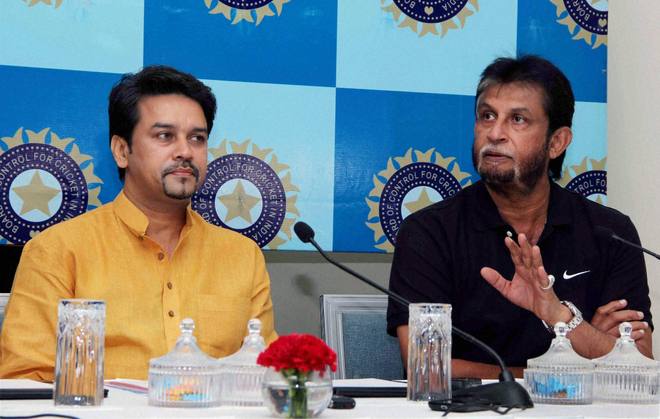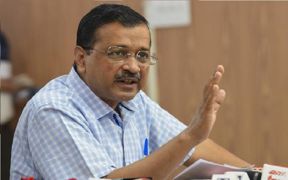
The Supreme Court has said that the BCCI performs a public function when it selects a team to represent the nation. File photo
Rohit Mahajan
Tribune News Service
Chandigarh, August 4
Sports Minister Sarbananda Sonowal has said, again, that the Indian cricket board (BCCI) needs to be made accountable and transparent in its functioning, as according to the Supreme Court of India, it is a “public body”.
The BCCI, of course, doesn't want to be accountable — for years, it has strongly resisted efforts to bring it under the purview of the Right to Information (RTI) Act.
Over the last few weeks, the BCCI has been trying to portray a kinder, gentler image of itself. This has been caused by the fear that the Justice Lodha Committee, appointed by the Supreme Court to suggest reforms in the BCCI, will drastically amend its constitution and clip the wings of the officials.
The BCCI is trying to look nicer, but the true test of its intentions is its attitude to the RTI Act. That attitude has not changed, and it remains committed to its practice of unscrutinised operations, as BCCI secretary Anurag Thakur confirmed in a recent interview.
Sonowal, when asked if the BCCI should be brought under the purview of the RTI Act, said: “Let me be very clear... I have been telling time and again that as per the observation of the Supreme Court of India, BCCI is a public body. Now it is the expectation of the sports-lover of the country that transparency and accountability should be there in the day-to-day affairs of all the sports federations.”
Sonowal was referring to the Supreme Court judgement, made in January, which said that the BCCI “was discharging some duties like the selection of Indian cricket team, controlling the activities of the players, which were akin to public duties or State functions”.
The BCCI's argument against being brought under the purview of the RTI Act is that it is an autonomous body which receives no financial funding from the government.
However, the Supreme Court judgement in January shattered this notion of autonomy by striking down a controversial BCCI clause. The BCCI constitution's clause 6.2.4, changed in 2008, had allowed board officials to have a commercial interest in the IPL and the Champions League T20 tournaments. The Supreme Court, in that landmark judgement showed that the BCCI cannot act independent of the country's legal provisions. The court had said this clause was “void and ineffective”, and “unsustainable and impermissible in law”.
Fight at CIC
Meanwhile, the BCCI continues to fight efforts to bring it under the RTI Act. The Central Information Commission (CIC) heard the case for years before, in 2013, the BCCI obtained a stay on the proceedings there from the Madras High Court.
To hear the case, the CIC had constituted a full bench and issued notices to the BCCI and its member associations, asking them to provide the details of land, buildings and stadiums etc allotted to it by the state governments. The BCCI had also been asked to produce details of income tax exemptions received by it.
Those details had been sought to evaluate whether they were substantial enough for the BCCI to be brought under the RTI Act.
The RTI Act states that all “Public Authorities” must fall under the ambit of the Act, and must provide information about their operations to India's citizens. Section 2(h) of the RTI Act has this definition of a “Public Authority”: “Any authority or body or institution of self government established or constituted by or under the Constitution; or by any other law made by the Parliament or a State Legislature; or by notification issued or order made by the Central Government or a State Government.... Bodies owned, controlled or substantially financed by the Central Government or State Government also fall within the definition of public authority.”
Now, the BCCI and its constituents have received prime land across the country at throwaway rates, in order to build stadiums. Activists estimate that this land across India would be worth over Rs 30,000 crore now. If this seems an exaggeration, consider only two big stadiums on the Mumbai seafront — the land they occupy would be worth thousands of crores. The CIC would have tried to evaluate if the land, tax exemptions etc given to the BCCI are substantial enough, as defined by the RTI Act.
The case remains undecided. The “new, more open” BCCI’s attitude to this case will show whether it has reformed itself.



























